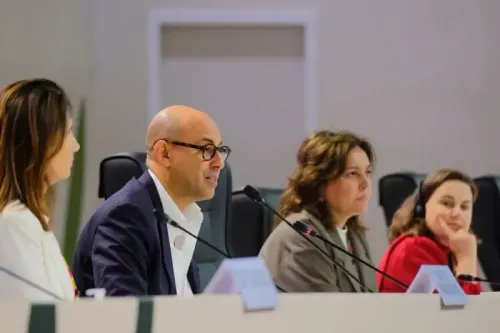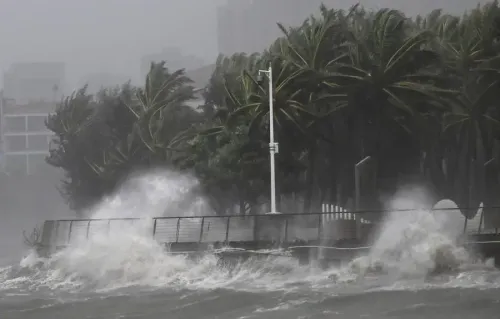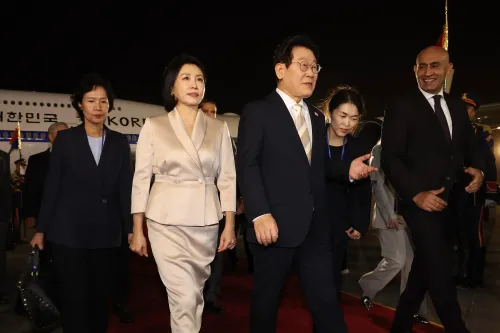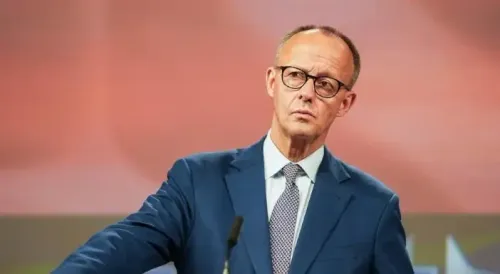How is Brazil Leading COP30 Climate Negotiations?
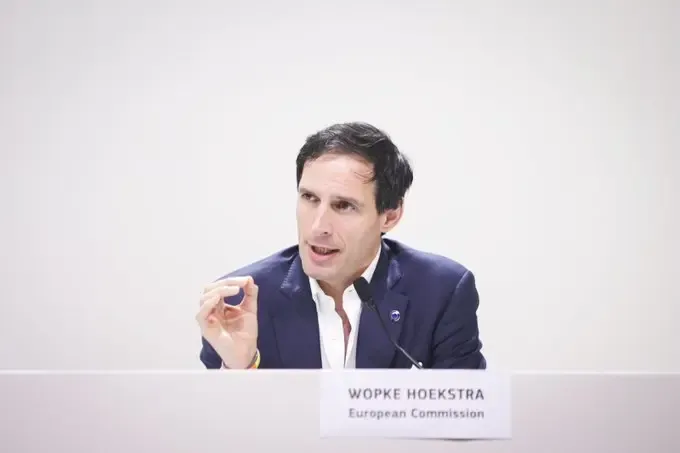
Synopsis
Key Takeaways
- Brazil's leadership is pivotal in COP30 negotiations.
- Urgent need for adaptation funding highlighted.
- Vulnerable nations must be prioritized.
- Sustainable growth is essential for climate transformation.
- Significant climate actions are being discussed.
Belem (Brazil), Nov 20 (NationPress) The European Commissioner for Climate, Net Zero and Clean Growth, Wopke Hoekstra, commended Brazil's leadership and initiatives in advancing the climate discussions at the 30th United Nations Climate Change Conference (COP30).
Hoekstra made these remarks during a press briefing with the European Union delegation at the Hangar convention center in Belem on Wednesday (local time), where COP30 is currently taking place. This conference commenced on November 10 and is scheduled to continue until November 21, with the climate negotiations nearing their conclusion, according to reports from Xinhua news agency.
Hoekstra stated, "It’s remarkable that President Lula is leveraging all his political influence for this cause." He emphasized the EU’s support for Brazilian President Luiz Inacio Lula da Silva’s choice to make Belem the venue for COP30, which serves as a pivotal access point to the Amazon rainforest.
In terms of climate discussions, Hoekstra highlighted that the energy transition must be supported by substantial adaptation funding, which he described as "central" to the negotiations. He pointed out that mere mitigation efforts are insufficient to tackle a climate emergency that is unfolding at an alarming pace.
He remarked that the most vulnerable nations, particularly small-island developing countries, must be prioritized as they are in dire need of financial assistance and bear minimal responsibility for the climate emergency.
Additionally, he mentioned that climate transformation necessitates more sustainable economic growth without sacrificing global expansion. "Let’s avoid the illusion that reduced growth benefits those who are most disadvantaged," Hoekstra asserted, warning that downturns typically affect the most vulnerable communities first.
Moreover, UN Climate Change Executive Secretary Simon Stiell on Wednesday underscored the progress made under the COP30 Action Agenda concerning climate change and emphasized the critical need to convert commitments into tangible actions.
Stiell noted, "COP30 has achieved a remarkable record of real-world climate initiatives that will lead to stronger economies, more job opportunities, and improved livelihoods for millions."
He highlighted significant investments in clean energy and grid infrastructure, a global initiative to quadruple sustainable fuel production, efforts to foster new green industries, and an expanding array of climate-adaptation funding.

